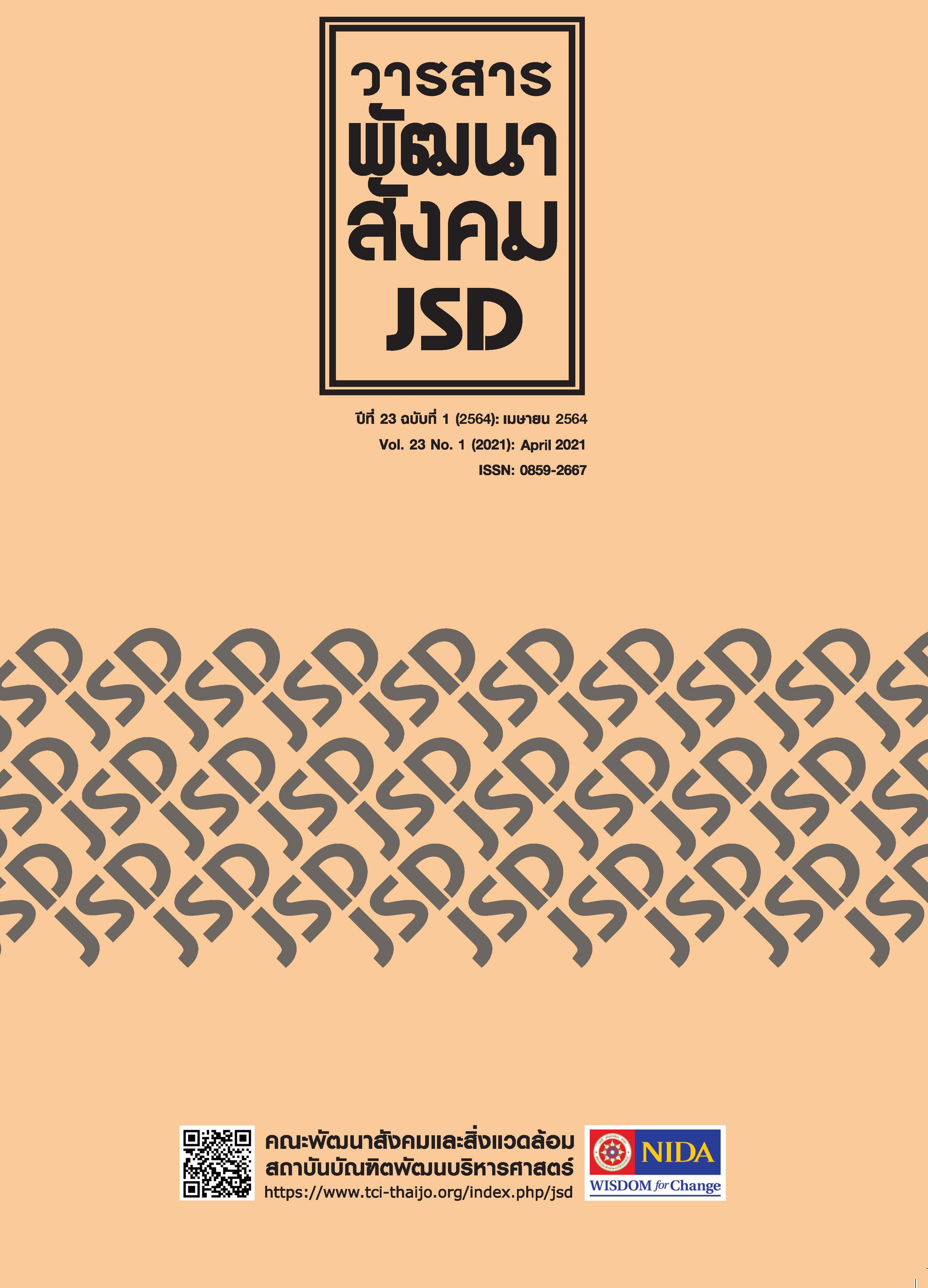Community-based Tourism, Sufficiency Economy Philosophy and Sustainable Development
Main Article Content
Abstract
Article Details
References
ASEAN Secretariat. (2016). ASEAN Community Based Tourism Standard, Jakarta, The ASEAN Secretariat.
Avery, G. C. & Bergsteiner, H. (2016). Practices for Enhancing Resilience and Performance, in Sufficiency Thinking: Thailand’s Gift to an Unsustainable World, Avery & Bergsteiner (eds.) (pp. 235-247). Sydney: Allen & Unwin.
Bank of Agriculture and Agricultural Cooperatives. (2014). Thai Way of Tourism [in Thai]. Bank of Agriculture and Agricultural Cooperatives. Retrieved July 30, 2014 from
Bergsteiner, H. & Dharmapiya, P. (2016). The Sufficiency Economy Philosophy Process, in Sufficiency Thinking: Thailand’s Gift to an Unsustainable World, Avery & Bergsteiner (eds.) (pp. 32-52). Sydney: Allen & Unwin.
Burgos, A. & Mertens, F. (2017). Participatory Management of Community-based Tourism: A Network Perspective. Community Development, 48(4), 546-565.
Giampiccoli, A. & Kalis, J. H. (2012). Tourism, Food, and Culture: Community-based Tourism, Local Food, and Community Development in Mpondoland. Culture Agriculture Food and Environment, 34(2), 101-123.
Giampiccoli, A. & Nauright, J. (2010). Problems and Prospects for Community-Based Tourism in the New South Africa: The 2010 FIFA World Cap and Beyond. African Historical Review, 42(1).
Giampiccoli, A. & Saayman, M. (2016). Community-based Tourism: From a Local to a Global Push, Acta Commercii – Independent Research Journal in the Management Sciences. 16(1), 1-10, Retrieved From <http://dx.doi.org/10.4102/ac.v16i1.372>
Giampiccoli, A., Saayman, M. & Jugmohan, S. (2016). Are Albergo Diffuso and Community-based Tourism the Answers to Community Development in South Africa?. Development Southern Africa. 33(4). 1-14.
Goodwin, H. & Santilli R. (2017). Community-based Tourism: A Success?, ICRT Occational Paper, Retrieved from
Hall, C. M. (1994). Tourism and Politics: Policy, Power and Place, Chicester, UK: John Wiley and Sons.
Kantabutra, S. (2016). From Philosophy to Business Practice, in Sufficiency Thinking: Thailand’s Gift to an Unsustainable World, Avery & Bergsteiner (eds.) (pp. 216-232). Sydney: Allen & Unwin.
Lopez-Guzman, T.; Borges, O. & Castillo-Canalejo, A. M. (2011). Community-based Tourism in Cape Verde – A Case Study. Tourism and Hospitality Management. 17(1). 35 - 44.
Prammer, E. & Martinuzzi, A. (2013). The Millennium Development Goals (MDGs) and the Post-2015 Debate, ESDN Case Study No. 13, European Sustainable Development Network.
Rathanawong, P. (2009). Sustainable Tourism Policy Management of the Administrative Organization for Development of the Sustainable Tourism Special Area: A Case Study of Chang Island and Related Areas, Trad Province [in Thai]. Journal of Public Administration, Krirk University. 1(1).
Rui, Song. (2018). Report on World Tourism Economy Trends (2018), Tourism Research Center, Chinese Academy of Social Science, Berlin. Retrieved August 3, 2018 from <https://www.usip.org>
Samukkethum, S. (2018) The Application of the Sufficiency Economy Philosophy for the Management of Sustainable Community-based Tourism [in Thai]. Study Center of Sufficiency Economy Philosophy and Sustainable Development, National Institute of Development Administration.
Samukkethum, S. et al., (2007). The Problems of Homestay Management according to Sufficiency Economy Approach: A Case Study of Bangkhonthi District, Samutsongkham Province [in Thai]. Research Report, Krirk University.
Satarat, N. (2010). Sustainable management of community-based tourism in Thailand. (Doctoral dissertation). National Institute of Development Administration (NIDA), Bangkok.
Siriphacharongkul, T. (2014) New Public Governance of the Cultural Tourism: A Case Study of Amphawa Floating Market [in Thai]. (Doctoral dissertation). Krirk University, Bangkok.
Steurer, R.; Langer, M. E.; Konrad, A. & Martinuzzi, A. (2005). Corporations, Stakeholders and Sustainable Development I: A Theoretical Exploration of Business-Society Relations. Journal of Business Ethics. 61(3). 263-281.
United Nations Thailand. (2015). The Global Goals for Sustainable Development. Retrieved May 31, 2018 from
WWF International. (2001). Guidelines for Community-based Ecotourism Development, UK: Rufford Foundation.
Wyllie, R. (1998). Not in Our Backyard: Opposition to Tourism Development in a Hawaiian Community. Tourism Recreation Research. 23(1). 55-64.


